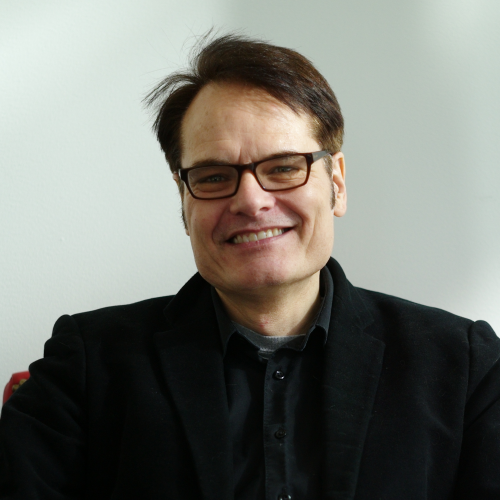Can people who don’t believe in evolution enjoy a science documentary about evolution?
Absolutely, according to a new report that shows there is no relationship between believing in evolution and being engaged by evolutionary science. The report suggests that people who don’t believe in evolution yet are highly curious about science may constitute a “missing audience” that documentary filmmakers can seek out to expand viewership and scientific knowledge.

The report, by the Evidence-based Science Filmmaking Initiative (ESFI), a project of the Cultural Cognition Project at Yale Law School, aims to measure scientific curiosity and engagement and areas of common ground in an effort to provide filmmakers with better information about their prospective audience. The report was published online by ESFI.
The report’s lead author is Dan M. Kahan, Elizabeth K. Dollard Professor of Law and Professor of Psychology at Yale Law School, and a visiting scholar at the Annenberg Public Policy Center (APPC) of the University of Pennsylvania, which helped to fund the study. Kahan is leading APPC’s research in the Science of Science Communication during the spring 2016 semester.
The filmmaking initiative studied a nationally representative group of 2,500 people and gave them the opportunity to view a 10-minute clip from an episode of “Your Inner Fish,” an Emmy Award-winning three-part series that ran on PBS in 2014. The movie was produced by Tangled Bank Studios, a partner in the filmmaking initiative.
Curiosity about science was a stronger predictor of whether viewers would be engaged with the movie than belief or non-belief in evolution, the researchers found. People who didn’t believe in evolution – but showed a lot of curiosity about science – were more engaged with the film than those who weren’t curious, regardless of their beliefs on evolution.
The study also proposed methodologies for measuring science curiosity and engagement. (For more about people who are science-curious — and whether they attend museums or guns shows, or like to read about science or religion — read Kahan’s blog post here.)
About 40 percent of the people in the study said they did not agree that humans evolved from an earlier species of animal, in line with other national surveys. Kahan said a profession of belief or non-belief in evolution was an indicator of cultural identity, not scientific knowledge or interest.

“What people say they ‘believe’ about human evolution doesn’t indicate what people know; it expresses who they are, culturally speaking,” Kahan wrote in a blog post. He added, “When put in the position of having to choose between being who they are and expressing what they know, free, reasoning people understandably opt for the latter.”
Surprisingly, the researchers found that there was a more than 75 percent probability that a high-curiosity “nonbeliever” in evolution would agree that the film clip was convincing and valid. The clip, from an episode called “Your Inner Monkey,” focused on monkeys and the impact of random mutation, natural selection, and genetic variance on color perception in humans.
Some people who are high in science curiosity, the report found, “happen to be the sorts of people whose cultural identity is enabled by disbelieving in evolution.” The report calls that state “cognitive dualism,” and said that viewing the clip didn’t change that: “The clip succeeded in engaging nonbelievers with high [science curiosity] scores because it satisfied their desire to know what science knows – not because it made them into different people.” Such dualism helps to explain how people for whom religion is extremely important and who work in professions that depend on scientific knowledge – including, say, some doctors and farmers – can both “disbelieve” evolution and understand and appreciate science.
Science documentaries typically fail to untangle those questions, Kahan said. The “missing audience” hypothesis is proposed as an alternative to the “natural audience” theory, which holds that science documentaries have a limited appeal due to “social influences largely outside the control of science filmmakers.” But Kahan said the popular appeal of reality-TV science-based shows like the Discovery Channel’s “MythBusters” hint at the larger audience for science films.
“As science filmmakers, we are constantly facing decision points when we tell our stories,” said filmmaker Katie Carpenter, the executive director of ESFI. “Whether we’re talking about the Big Bang, global warming, evolution, emerging viruses or GMOs, these are issues that can be described in so many different ways. Who we choose to interview, what sort of graphic animation we choose to illuminate a scientific process, how much uncertainty we allow into the picture – these are questions we face every day.”
She added, “We have learned that science documentaries – especially those covering climate and conservation – can strike different audiences in very different ways, and sometimes more data or general scientific information pushes people farther to the extremes of opinion. We believe these studies will help all communicators understand how and why this happens, and learn to avoid the extreme polarization that can result from heavily didactic, overly political communication styles.”
“So much of what’s important about this study is challenging your assumptions about what good filmmaking is,” said Laura Helft, senior manager for public outreach and evaluation for Tangled Bank Studios. “Studies like this get to the nub of it and ask in a rigorous way: Could we be more effective in drawing a broader audience? Just how big is this missing audience, and how much of it can we capture?”
The group, which includes APPC postdoctoral fellow Asheley Landrum, is planning further studies to refine their work and test approaches to presenting scientific information in films.
Kahan is also co-editing “The Oxford Handbook on the Science of Science Communication” with APPC director Kathleen Hall Jamieson and another APPC visiting scholar, Dietram A. Scheufele of the University of Wisconsin-Madison.

